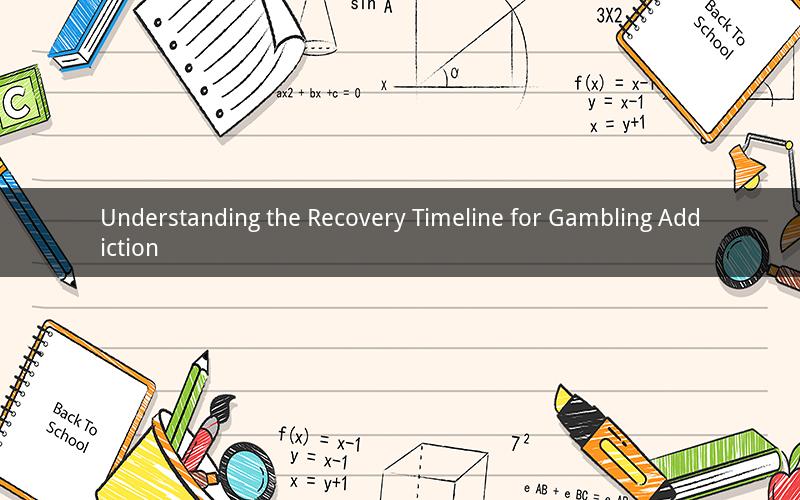
Gambling addiction, also known as compulsive gambling, is a serious condition that affects millions of individuals worldwide. Overcoming this addiction is a challenging journey, and many people wonder how long it takes to recover. In this article, we will explore the factors that influence the recovery timeline for gambling addiction and provide insights into the process of overcoming this problem.
The Recovery Timeline
The duration of recovery from gambling addiction can vary significantly from one person to another. While some individuals may experience a relatively quick recovery, others may face a longer and more complex journey. On average, it takes several months to several years to recover from gambling addiction, depending on various factors.
1. Severity of the addiction
The severity of the addiction plays a crucial role in determining the recovery timeline. Those with a mild form of gambling addiction may recover within a few months, while individuals with severe addiction may require several years of treatment and support.
2. Treatment and support
Access to appropriate treatment and support is essential for recovery. Individuals who receive professional help, such as therapy, counseling, and support groups, tend to recover more quickly than those who rely on self-help methods.
3. Personal commitment
Recovery from gambling addiction requires a strong personal commitment. Individuals who are determined to overcome their addiction and actively participate in the recovery process are more likely to succeed.
4. Co-occurring disorders
Gambling addiction often co-occurs with other mental health disorders, such as depression, anxiety, and substance abuse. Addressing these co-occurring disorders is crucial for a successful recovery.
5. Environmental factors
Environmental factors, such as the presence of triggers and support systems, can impact the recovery timeline. Individuals who live in environments that encourage gambling or lack a strong support network may find it more challenging to recover.
Understanding the Recovery Process
1. Denial and realization
The first stage of recovery is often characterized by denial, where individuals may downplay or ignore their gambling problem. Over time, they may reach a point of realization and acknowledge that they need help.
2. Seeking help
Once individuals recognize their addiction, they must seek help. This may involve consulting with a healthcare professional, attending a support group, or entering a treatment program.
3. Treatment and therapy
Treatment for gambling addiction typically involves therapy, counseling, and support groups. Cognitive-behavioral therapy (CBT) is an effective treatment that helps individuals identify and change the thoughts and behaviors that contribute to their addiction.
4. Relapse prevention
Relapse is a common challenge in the recovery process. Learning relapse prevention strategies and developing a strong support network can help individuals avoid relapse and maintain their recovery.
5. Long-term maintenance
Recovery from gambling addiction is an ongoing process. Individuals must continue to work on their recovery, attend support groups, and maintain a healthy lifestyle to prevent relapse.
Frequently Asked Questions
1. How long does it take to recover from gambling addiction?
Answer: The recovery timeline for gambling addiction can vary from a few months to several years, depending on the severity of the addiction, treatment, and personal commitment.
2. Can gambling addiction be cured?
Answer: While there is no cure for gambling addiction, it can be effectively managed and controlled through appropriate treatment and support.
3. What is the most effective treatment for gambling addiction?
Answer: Cognitive-behavioral therapy (CBT) is considered one of the most effective treatments for gambling addiction. It helps individuals identify and change the thoughts and behaviors that contribute to their addiction.
4. Can I recover from gambling addiction on my own?
Answer: While some individuals may recover on their own, seeking professional help and joining support groups can significantly improve the chances of a successful recovery.
5. Will I always be vulnerable to relapse after recovering from gambling addiction?
Answer: Relapse is a possibility for individuals who have recovered from gambling addiction. However, with ongoing treatment, support, and a strong commitment to recovery, the risk of relapse can be minimized.
In conclusion, overcoming gambling addiction is a challenging but achievable goal. Understanding the recovery timeline, seeking appropriate treatment, and maintaining a strong support network are essential for a successful recovery. By addressing the factors that contribute to gambling addiction and actively participating in the recovery process, individuals can overcome this problem and lead a fulfilling life.